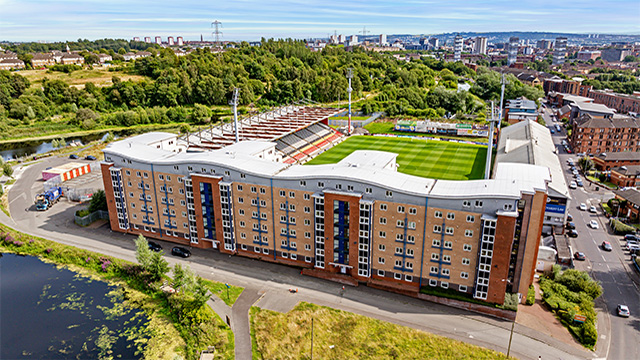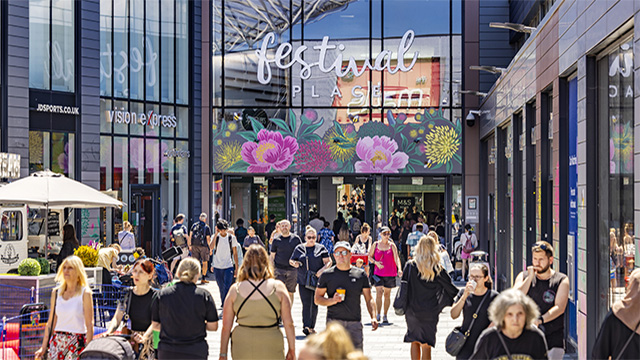How Landsec plans to create £200m in social value
When five young interns walk through the glass doors of Landsec’s headquarters in London’s Victoria on Monday, their arrival will herald the start of something big.
A life-changing, career-starting moment for them perhaps. And for the property company, a major gear shift in its commitment to help transform the real estate industry into one that is representative of the communities which use the places it creates.
Landsec made a commitment 12 months ago to invest £20m by 2030 to address the need for greater socio-economic representation in the real estate industry. Since then, it has been designing a programme which it hopes will shift the dial for an industry in which 45% of professionals received an education from independent or selective schools – in contrast to just 6.5% of the nation’s population.
When five young interns walk through the glass doors of Landsec’s headquarters in London’s Victoria on Monday, their arrival will herald the start of something big.
A life-changing, career-starting moment for them perhaps. And for the property company, a major gear shift in its commitment to help transform the real estate industry into one that is representative of the communities which use the places it creates.
Landsec made a commitment 12 months ago to invest £20m by 2030 to address the need for greater socio-economic representation in the real estate industry. Since then, it has been designing a programme which it hopes will shift the dial for an industry in which 45% of professionals received an education from independent or selective schools – in contrast to just 6.5% of the nation’s population.
Today (19 April), it announced exactly how it plans to spend the £20m Landsec Futures fund to make a tangible difference – with the paid internship programme being one of four key elements to start receiving the new investment this month.
Jennie Colville, head of ESG and sustainability at Landsec, says these combined initiatives offer the potential to support 30,000 people into the world of work and deliver £200m in social value.
Four programmes
The six-month, entry-level internships will be offered to eight people each year, who will be paid the real living wage and work in a department of their choosing.
Each intern will work with a Landsec mentor and benefit from bespoke training as well as on-the-job experience. They will also be offered any pastoral support and care they need through charity partner Circle Collective, something Landsec learned was needed through its experience providing internships through the government’s now-closed Kickstart programme. “It means our interns can be supported with any additional needs they have while they are here at Landsec,” says Colville.
Next, Landsec will be providing real estate bursaries of up to £30,000 for students undertaking industry-related courses or qualifications, both apprenticeships and university degrees. The three-year bursaries will be offered to at least five students from lower socio-economic backgrounds.
Alongside these industry-focussed actions, Landsec is building on its relationships with charity partners. It will offer three-year funding packages to charities focused on education and employability in local areas across its portfolio. This will be used to further their work to get more people of all ages into a range of roles related to the real estate industry, faster.
The final element will see Landsec provide community grants of £1,000-£3,000 for charities local to the places where it invests, to increase funding for the most pressing social and economic challenges its communities are facing.
Track record
All of this builds on recent, more ad hoc initiatives: between 2020 and 2022, Landsec supported more than 4,500 people facing employment barriers to enter the world of work and delivered £20m in social value.
Youth empowerment organisation 2020 Change worked with Landsec during this period and is among those to have agreed a new three-year partnership with the company. Founder and chief executive Duro Oye says the funding will enable it to support an additional 40 young people each year, who are long term unemployed, underemployed, or not in education or training. Its focus will be on helping them to grow the confidence and skills needed to secure roles across the sector.
“Working with organisations such as Landsec is important because young people don’t know that companies like Landsec exist, let alone that they would welcome or invite them to work with them. They feel like roles within companies such as Landsec were not made for them, and this kind of partnership work is set to change all of that,” says Oye. One of the first cohort of interns came to the Landsec programme through 2020 Change.
Such partnerships are vital to open up the industry, Colville says. “Despite greater focus on diversity in recent years, we know the real estate industry is not where it needs to be if we want to create more inclusive, sustainable and successful places that support people and businesses to thrive,” she says.
“We need our industry to include a more diverse representation of people from all walks of life, empowering them to lead change in the places they know the best.”
Staff data
The success of the Landsec Futures programmes is seen as heavily dependent on the support of its own workforce. That could be through sharing expertise and experience, using volunteering days or through advocacy – ‘shouting’ about the programmes to peers and supply chain partners.
There is something else Landsec will be encouraging colleagues to do over the coming weeks, and that is to submit data on their own socio-economic backgrounds as part of its new diversity and inclusion strategy.
“From my experience, not many companies are collecting that data, but it is increasing,” Colville says. “We need to understand our workforce to understand where we need to invest to improve the socio-economic diversity of our staff. We want to increase our diversity internally as well as have that wider industry impact.”
Colleagues will be fully informed about how the data will be used – always anonymous and aggregated. Extending what the ethnicity pay gap and gender pay gap reporting already does, the data will be used to show where the ‘pinch points’ are – be that at entry level, middle management or in senior roles.
“We want to make sure our workforce has that socio-economic diversity, alongside gender diversity, alongside ethnic minority diversity,” Colville says. “We want our workforce to be representative of the places that we are designing and developing.”
When the company welcomes its first cohort of Landsec Futures interns on Monday, everyone looks set to gain.To send feedback, e-mail julia.cahill@eg.co.uk or tweet @EGJuliaC or @EGPropertyNews
Photo from Landsec











